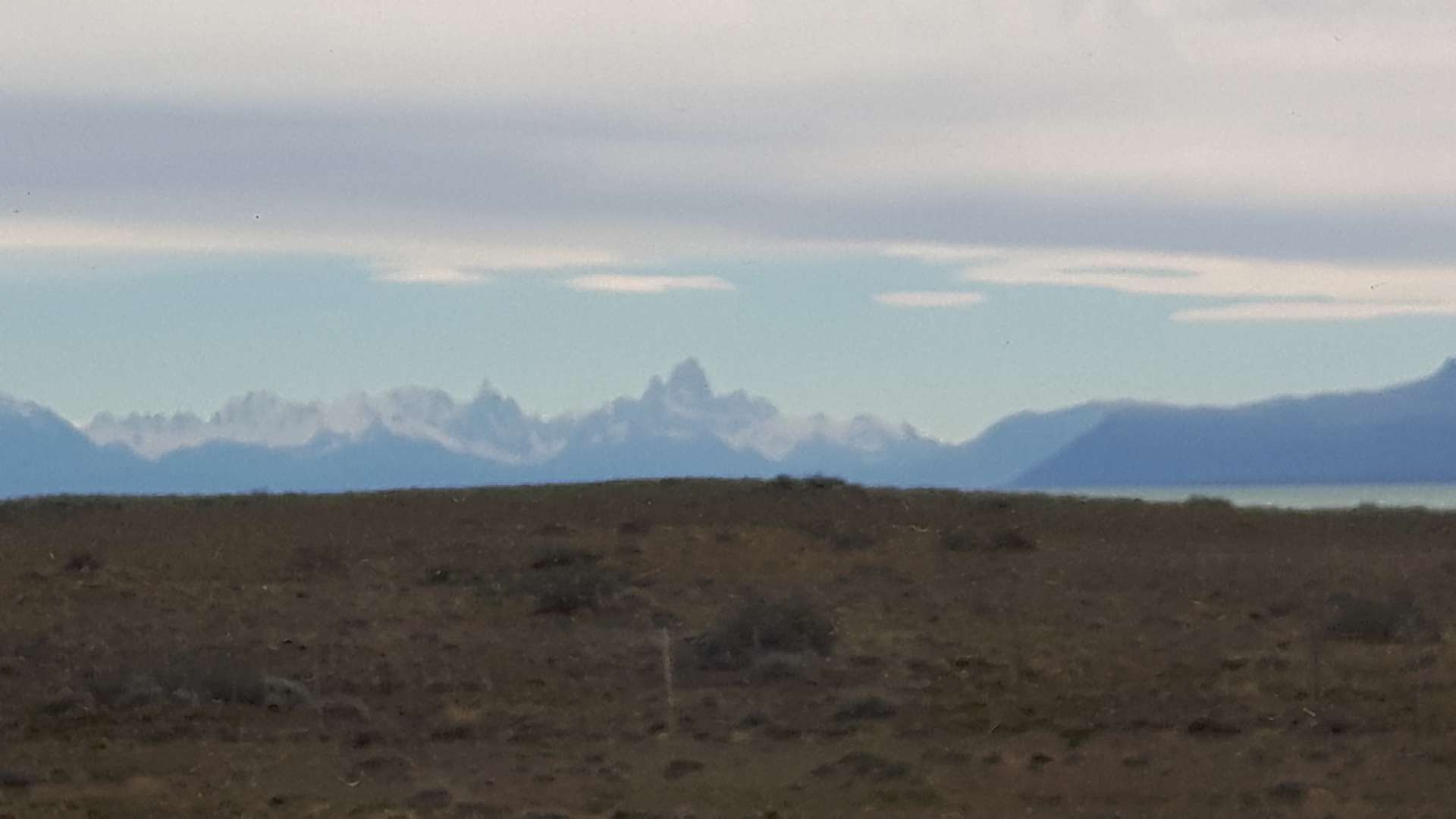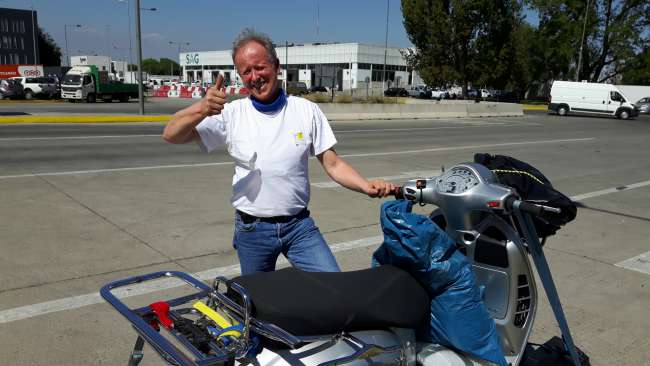from 16.10.: Huaraz - 3,100 m -
Objavljeno: 18.10.2017
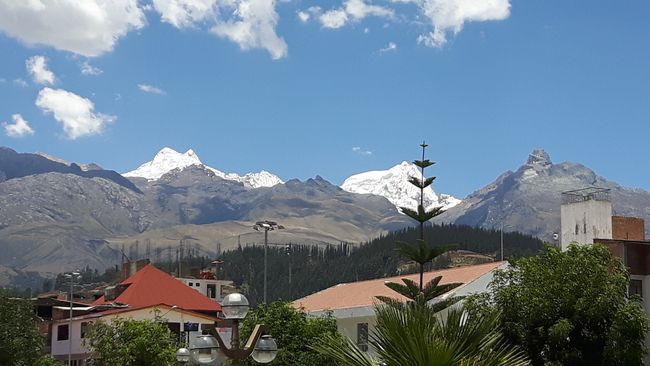
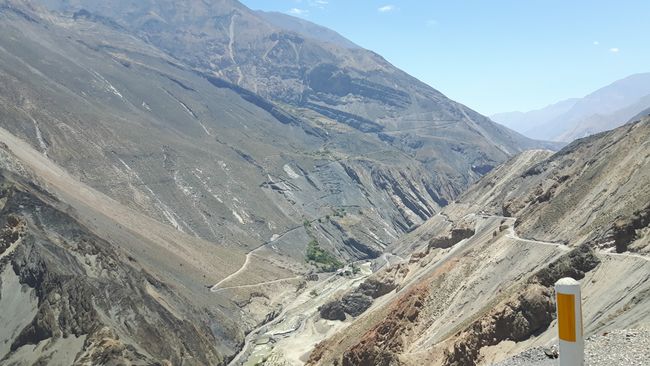
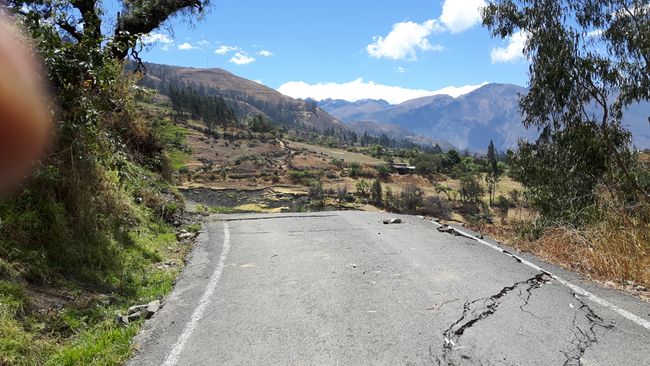
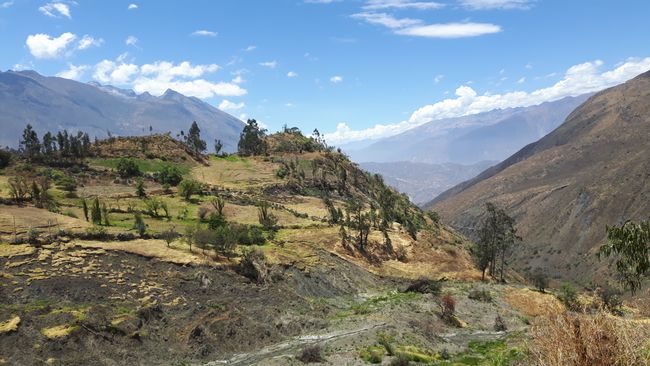
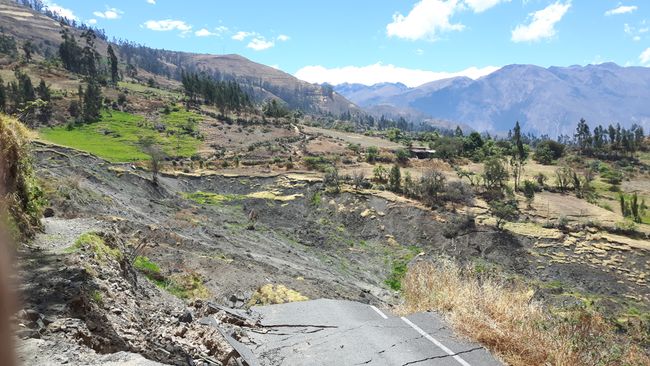
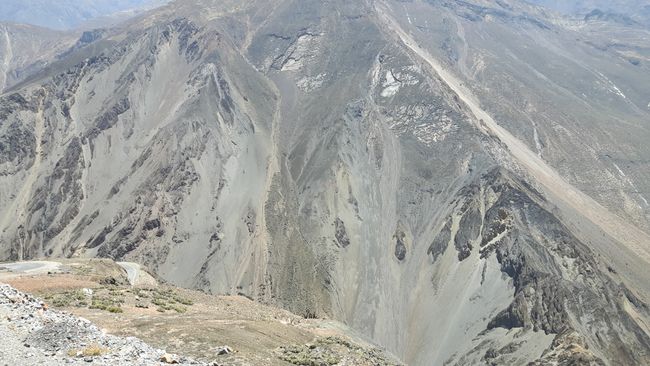
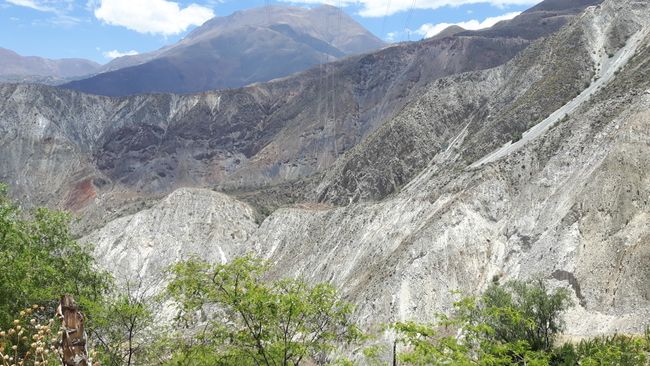
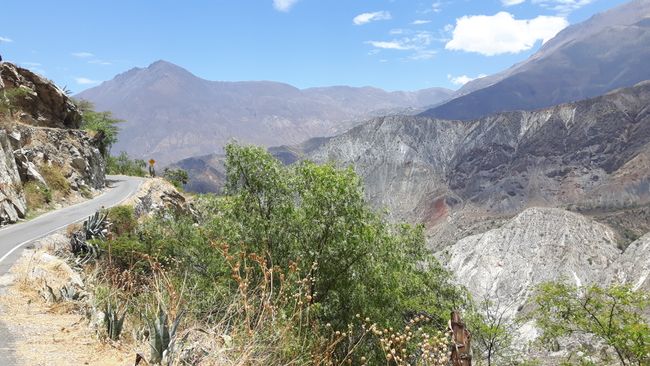
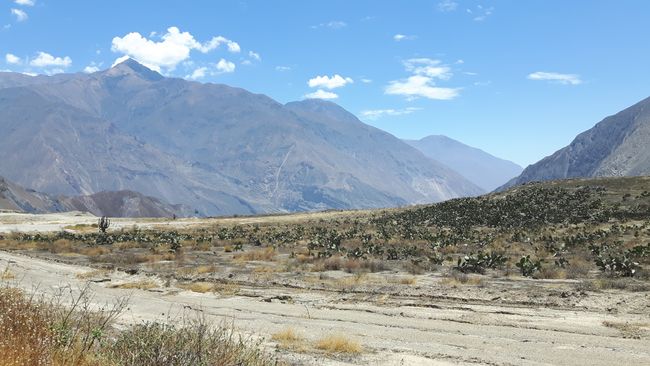
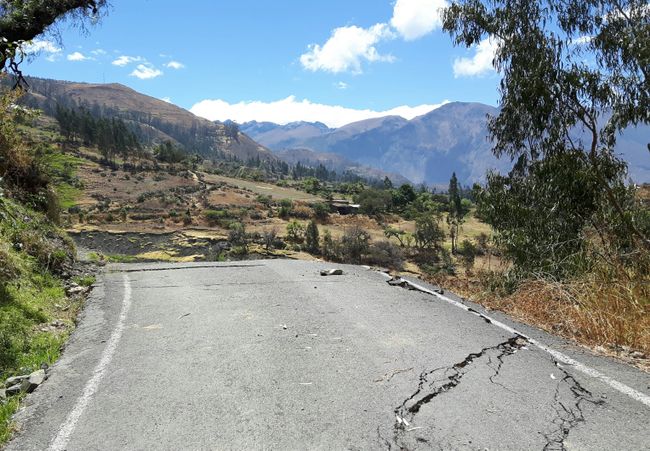
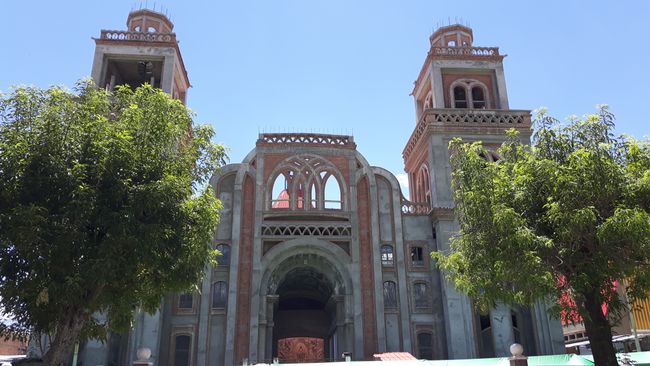
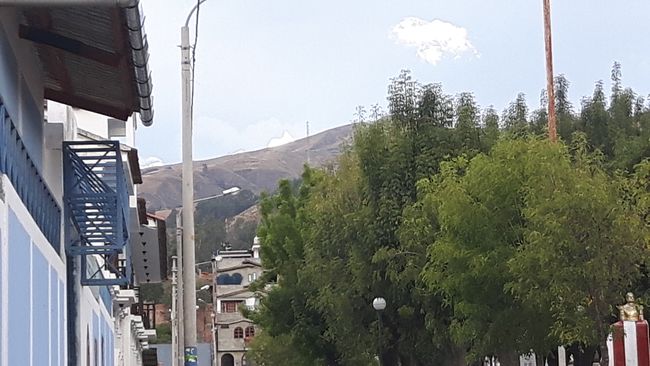
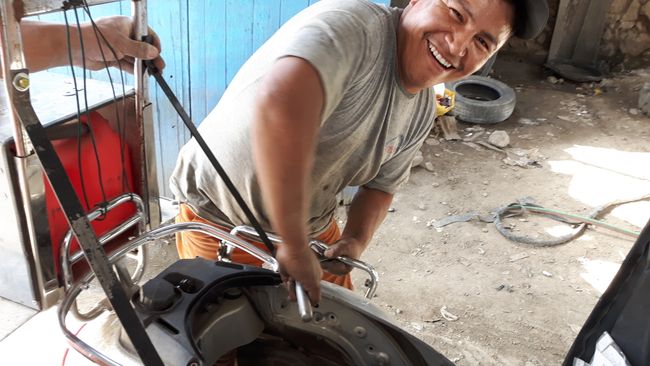
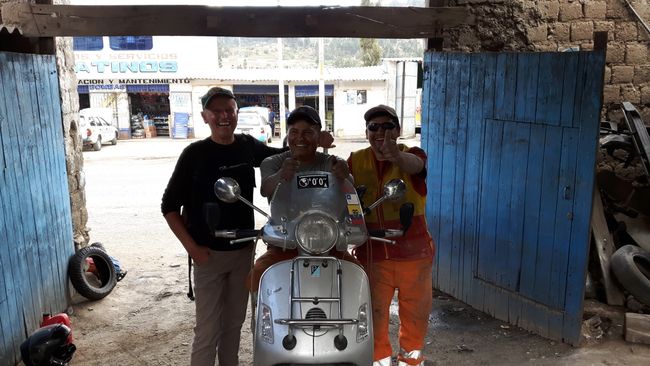
Pretplatite se na bilten
16.10.
my first night in a stable with chickens and a meowing cat. Who else has been lurking around here? I don't feel exhausted, but rather quite fit. But the first thing I can't resist doing in an unsupervised moment is to find out where the chickens are. They had and still have their place at the end of my bed, separated by boards placed on the floor and a large blue plastic sheet hanging from above. The meowing cat - she is still complaining about her life - does not make an appearance. Is she locked up? The senor is already sitting on his bench, working on the next basket. I get tortillas for breakfast and the good and invigorating herbal tea again.
Afterwards, I can take care of the wasps, change the spark plug, and pack up in peace. There is no crowd of people. Only one or two villagers stop and watch me. I am called "gringo" in my presence, which I experienced for the first time yesterday in Pallasca, when the little daughter asked if the gringo was staying here...
There is another photo - also of the son, who has joined and a nice farewell. Showering, washing, etc. had to be postponed for me. I hope for a good accommodation tonight.

the road remains asphalted, but its steep angle just after the village has kept me busy all night long.
I did what needed to be done. The spark plug was dark brown to black. So the jet was too big and let too much fuel through. If necessary, I have to pack up and carry the things to the top of the hill and hope that the next curves are not hairpin bends anymore.
But everything is fine. The vespa has to work hard, but the engine is gaining strength again and has enough speed for the next curve, which is not so tight. The weather is sunny, hardly any wind up here, hardly any traffic, only occasional farmers with their donkeys loaded with wood or greenery. Up and down, but at some point a sierra is supposed to come. I associate this with a kind of high plateau that will allow for more relaxed driving. But then I feel the effects of the March rain on my own skin:
I am driving fast, always looking at the GPS and staying on the 3N. I encounter a man with a shovel who signals to me that I can't go any further here. I don't believe it so easily and keep going. There is debris falling from the slope above, narrowing the road. Does he mean that? The road seems untraveled to me, stones and gravel are lying around, but that doesn't bother me further.
The roads here have the characteristic that a slope is so steep that the further course can only be seen after crossing the summit. It is the same here, I can no longer see the further course of the road. But as always, I slow down because you never know what is hidden behind it. A turn or rubble?
There is NOTHING here! A newly created valley. I can still see a bit of road, about 1 m below me.
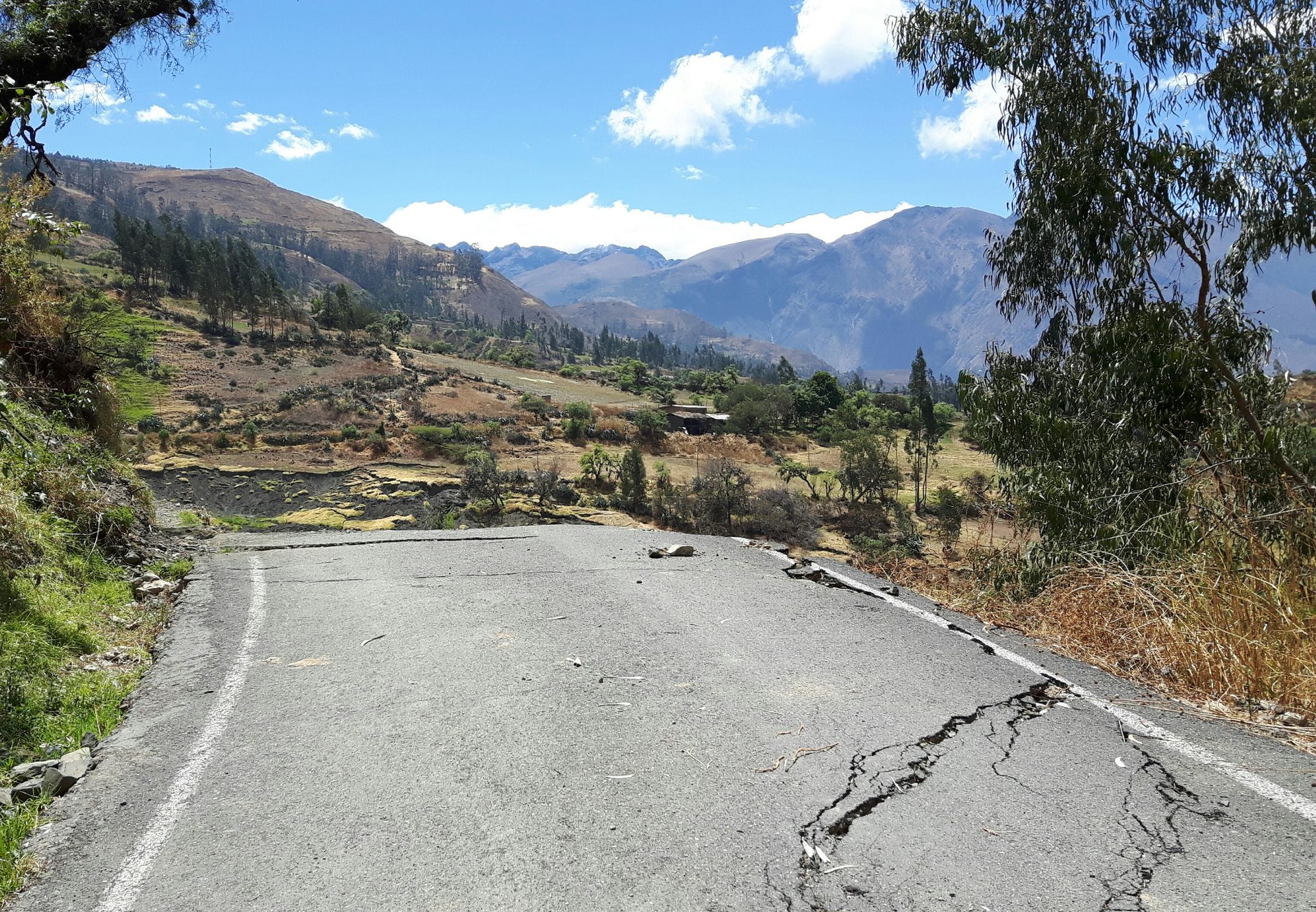

what powers have been at work here to change a landscape like this.
the rest is in the valley. I drive a few meters back and park the vespa where the road no longer has cross-cutting deep cracks. a newly created valley. nature is about to spread again on the new slopes, there is a small footpath for the people who depend on the road. I take photos. The shovel man is now within shouting distance. I approach him, and he tells me that the March-Nino has caused the mountain to sink. He lives up there in the house and has been able to observe it. But there is a road down at the bridge that would take me back to the 3N. I am relieved that I don't have to improvise. I eat a few more mandarins and I am completely alone here after the shovel man leaves. High mountains all around me. It becomes clear to me once again how much I depend on the vespa. It is very hot, almost oppressive. Now to continue on foot with the backpack...
I end the break. The vespa starts and I go back to the bridge.
The road is not yet asphalted and actually leads me back to the 3N after half an hour. The remaining "pre-Alpine region" has meanwhile disappeared. It is barren again, just gravel, rocks, and tufts of grass. But the asphalt remains. It goes up the mountain again and down to the valley, there are huge quebradas - gorges to be seen, no human soul around me.
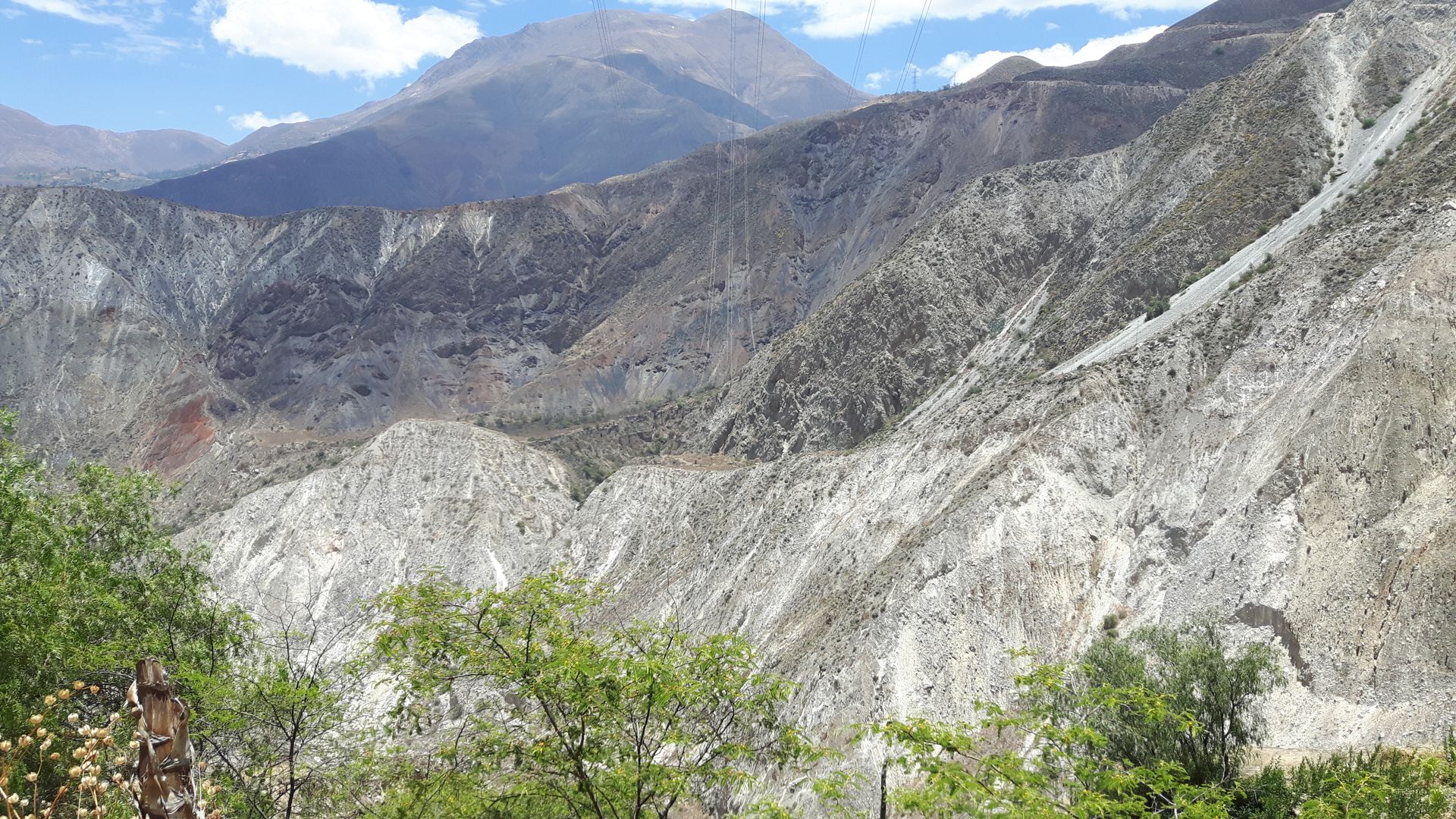
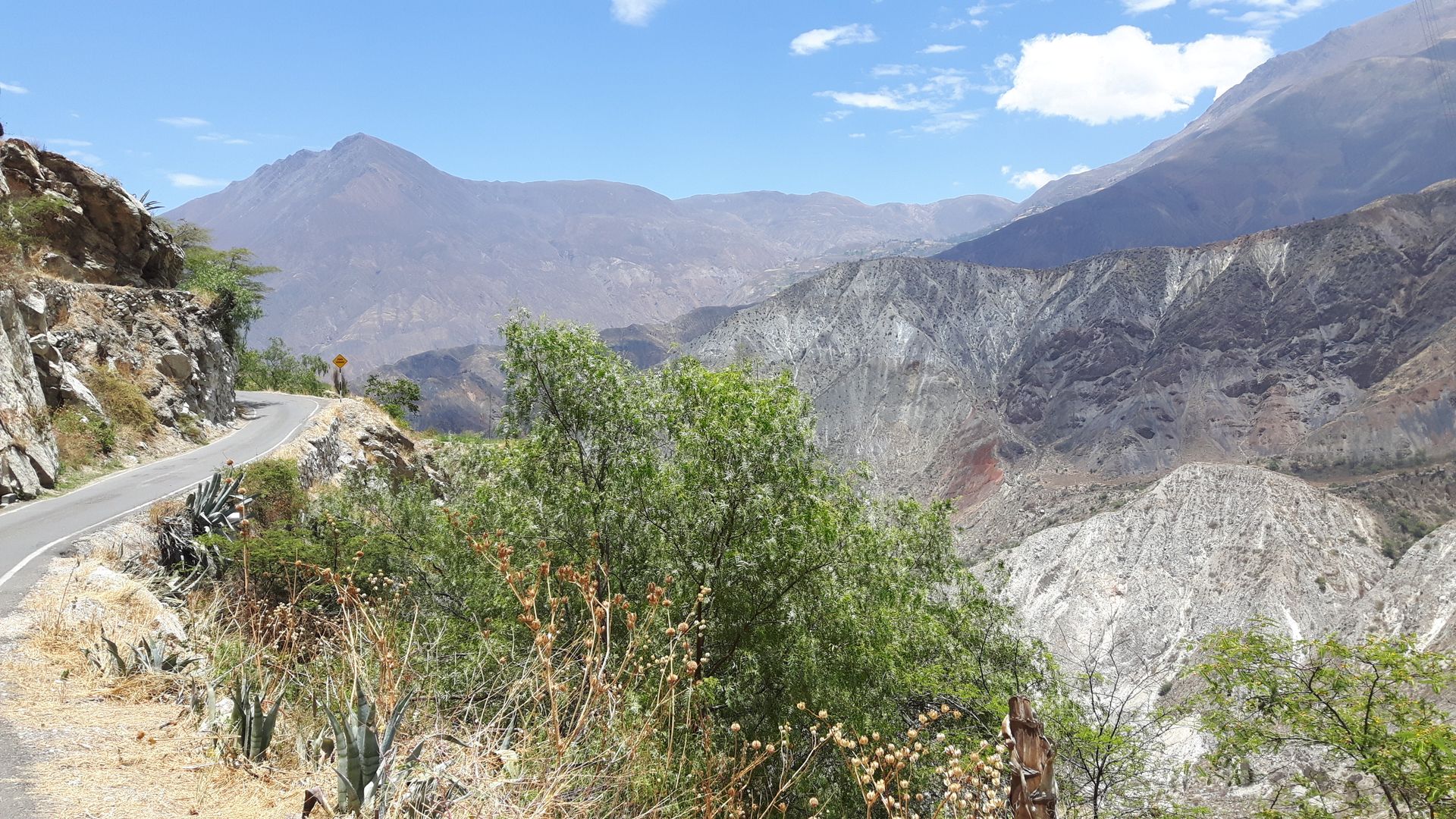
close to the rocks and the severity of the central Andes

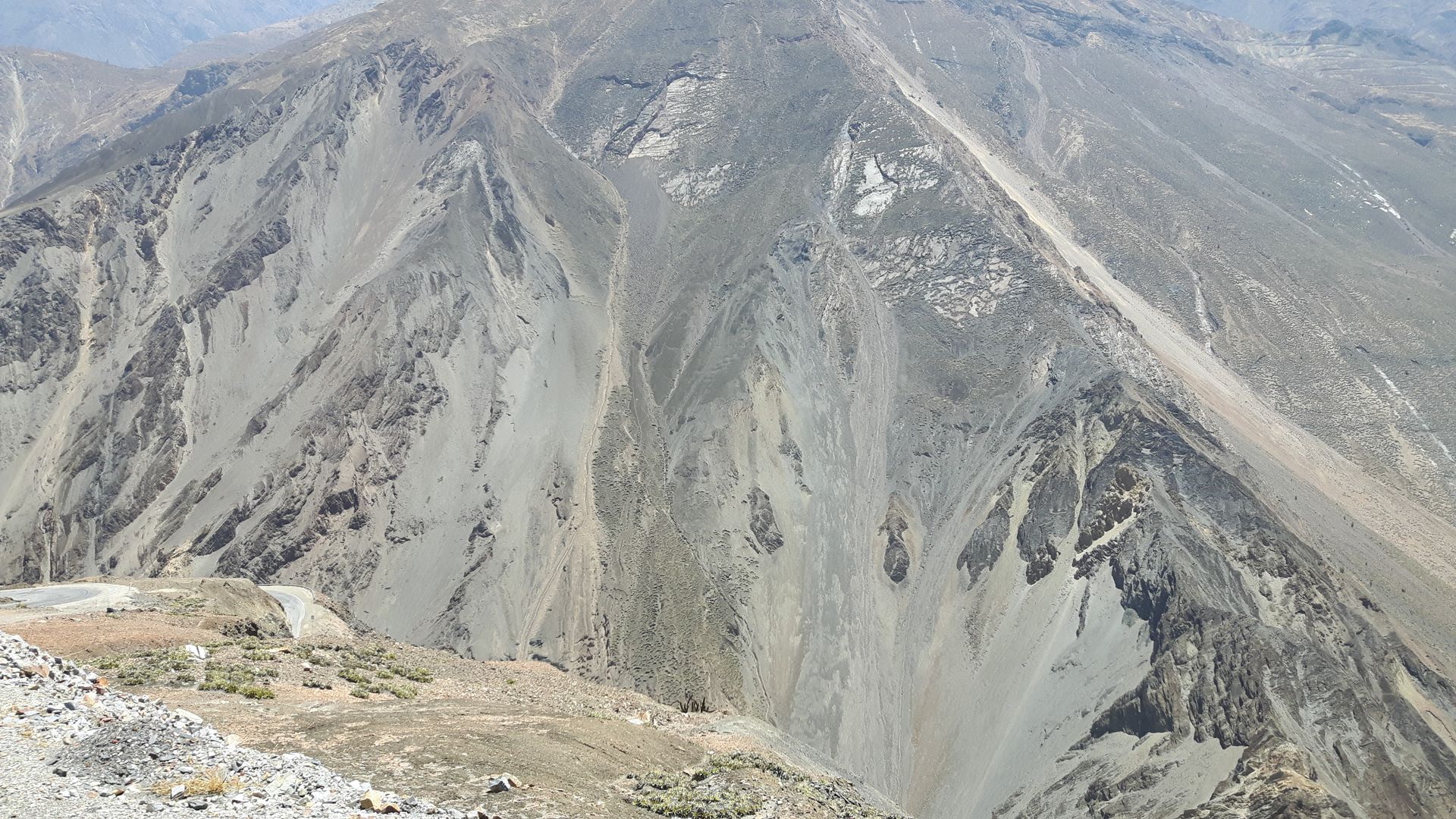
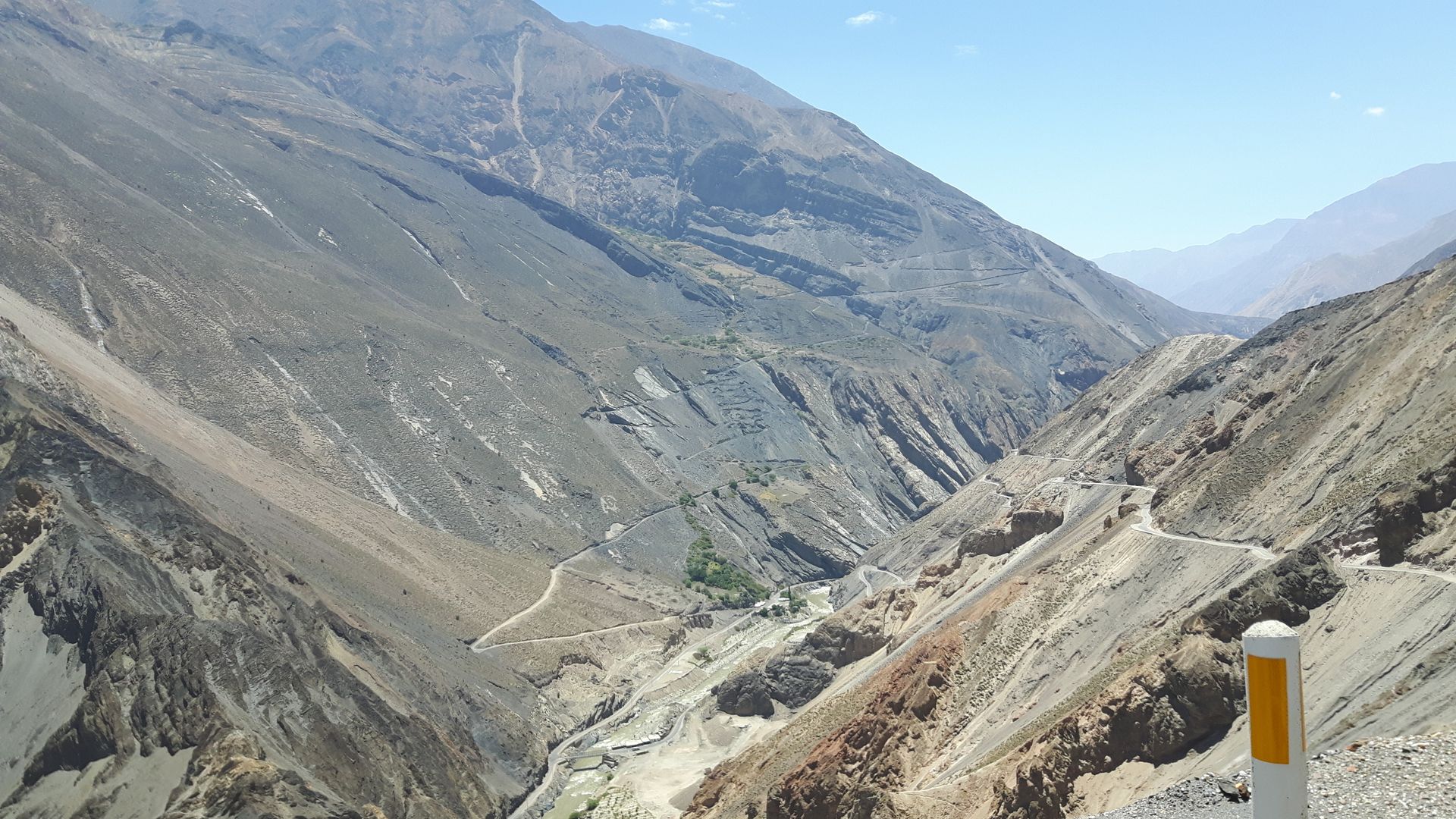
This will continue for a long time until I reach river level and reach a T-junction. Slowly I have to consider whether I want to continue west or east. Do I want to pick up the spare parts in Lima or Cusco?
There are also only rocks and gravel here. There are only two stalls - one on each side of the road - that provide the passengers of passing and stopping buses with food. I feel like taking a break and having a cola, and I'm glad that I can take off my warm but safe jacket. It's a nice break. The couple waiting for customers is talkative and grateful for the change of pace. They sell fruits from palm trees that are supposed to taste sweet and are gladly bought by the passengers of the bus that just arrived. They told me the name. I forgot it. I have a notepad in my backpack that I will use for such occasions.
I decide to go to the left, thank them, and continue driving. Somehow, I don't take the rest of the route seriously anymore. Because there is a river flowing there, I prepare myself for a valley and soon expect green vegetation. But I'm wrong. From here on, there are no more photos of the journey.
It goes up again. The road is asphalted, but has become dangerous due to the debris falling on the right side. I drive east and fortunately have the sun at my back. The first tunnel comes. I forget that I have the sun visor down and suddenly find myself in darkness. I can't see anything and can only hope that neither oncoming traffic nor traffic behind me will make my life difficult. I continue to drive carefully, after a curve I see light again and also recognize the treacherous gravel strips in the middle of the lane. There is only one. If drivers meet, one has to drive backwards. Tunnel follows tunnel. Some are hewn into the mountain and windows in the valley provide natural light, while others are concrete tunnels built on the road, which, with their round arched windows facing the valley, have an almost Romanesque architectural style. After half an hour or an hour maybe, tunnel driving comes to an end. I pass a large dam, but can't stop or even look because the road, the gravel, and the sliding vespa require my full attention.
But now it's slowly turning green. The first villages appear, fruit stands, people, mototaxis, bumps. It's a good feeling to be among people again. I actually wanted to end the day in Yucamarca, but with the cola, I don't feel tired. The GPS promises me an average speed of 50 to 60 km/h and indicates an arrival time of 5:30 p.m. in Huaraz.
Because the height no longer means anything to me, the vespa is fine, and it tells me very forcefully that a jet change is due. It still takes me to a parking bay and then simply goes out. I try again. No, the engine stays off.
I take the next larger one and go to the city to get money and a new padlock. I want to pay, the wallet is not in its place. It can only be on my seat. My assumption is almost correct. It slipped from the seat when I got out and fell into the gutter! I just have to be more careful, I admonish myself. Tranquillo - in calmness lies the strength not to let oneself be seduced by supposed compulsions.
In the workshop, the mechanics are waiting. The vespa is assembled, I put the wheels and other things back on, and off we go. Nice farewell and hasta luego, which means see you later, but is not meant that way. I also point out that a third meeting is still pending. I hope it won't happen.
I spent quite a few hours here and once again experienced poverty up close, which prevails in this country. The fact that workshops are chaotic - here as well as with us - is nothing special. Here, less consideration is given to the environment, and if some oil spills during an oil change and spills onto the asphalt or clay floor, at best newspaper is used to soak it up. But there is also a family living behind the workshop, or Juan's family. A windowless adobe house is available for this purpose. During the day, I saw two or three people sitting on the clay floor in the entrance, wearing colorful skirts, colorful ponchos, and wide-brimmed straw hats, observing the activities in the workshop. Later - it's already dark - a 16-year-old boy comes out of the house - with a little puppy in his arms. The chickens live behind the workshop. And only a 10-minute vespa ride away is the Plaza de Armas with authorities and people rushing about the plaza in business attire while talking on their phones. And then when the afternoon rain comes or, as in March, heavy rain pounds on the not quite tight corrugated iron roofs and slowly streams run down the adobe walls and form puddles, maybe right where the sack of rice is placed...
And I drive back to my hotel with a tight roof and hot shower.
I will stay here one more night.
I will remove the braces again - they are only screwed on - and I can use them in Brazil if necessary. There are no hairpin bends there, only straight stretches through the rainforest. On the paved Transoceanica. I hope!
Tomorrow I wish for good light so that I can photograph the glaciated peaks of the 6 and 7 thousand meters.
17.10.
My hope is not fulfilled. The Cordillera does not show itself in its full size, like on my first day. Maybe I have a chance to capture a few good shots on the way.
Just a few meters away, the American breakfast is available for 10 soles less. And not only that: the restaurant also offers a vegetarian lunch menu and also has delicious fruit salads on offer. I let myself be pampered here today. Although there are two fewer rolls, the coffee comes in a larger cup.
Todays day is dedicated to preparations for departure. Profane things like taking and picking up laundry, but also getting a 13mm wrench to quickly remove and reattach the braces. I owe it to the 13mm wrench to immerse myself in the everyday life of this city. I visit around 5 to 7 hardware stores just to get this wrench. No hay! But that is also because, for local standards, the wrench is too rare. It is available in 1/2 inch, but not in 3/8 inch - size. But then I am lucky.
The hardware stores are small-format home improvement stores that have been displaced by large-format home improvement stores in Lima and Quito. Here, everything is available in the smallest of spaces. The owner is sitting hidden behind his sales counter and can only be seen on closer inspection. It's quite dim in here. But he knows his store.
The second challenge is just a piece of wire with a casing. I also have to visit several stores for this. But then I find what I'm looking for.
On the way back to the hotel, I decide to go for the vegetarian menu in my new breakfast restaurant. Vegetable tortilla, salad, freshly squeezed orange juice, and for dessert a large bowl of fruit salad with yogurt and nuts.
Almost every afternoon, the sky slowly becomes cloudy. Before the rain comes, I remove the vespa again, which means the braces go into the helmet compartment for now. The bar that carries the backpack and tends to come loose from its shoes during bumpy rides is fastened to the luggage rack with wire. A little oil and the vespa is ready to go for tomorrow morning.
Maybe today, for the third time, I will experience rain here. Short showers every now and then during my tour. Today it has been raining lightly from afternoon to evening. When it rains like this, I hope that tomorrow I will only have to deal with asphalt roads. Although the sun has a lot of power and dries the paths sustainably, but is that the case everywhere?
Tomorrow I will continue.
Pretplatite se na bilten
Odgovori
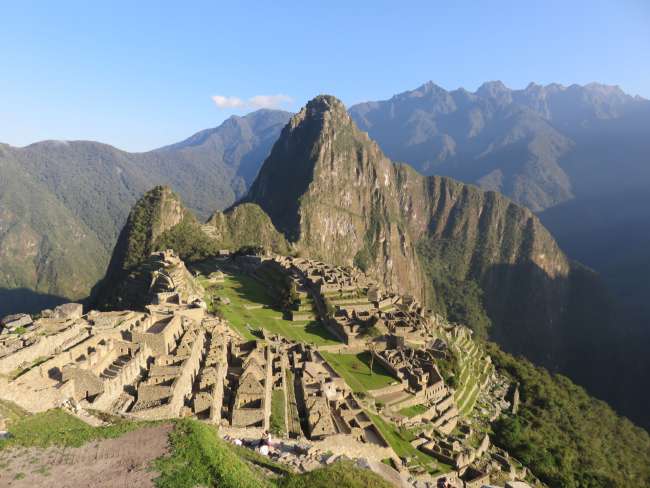
Izvještaji o putovanjima Peru
